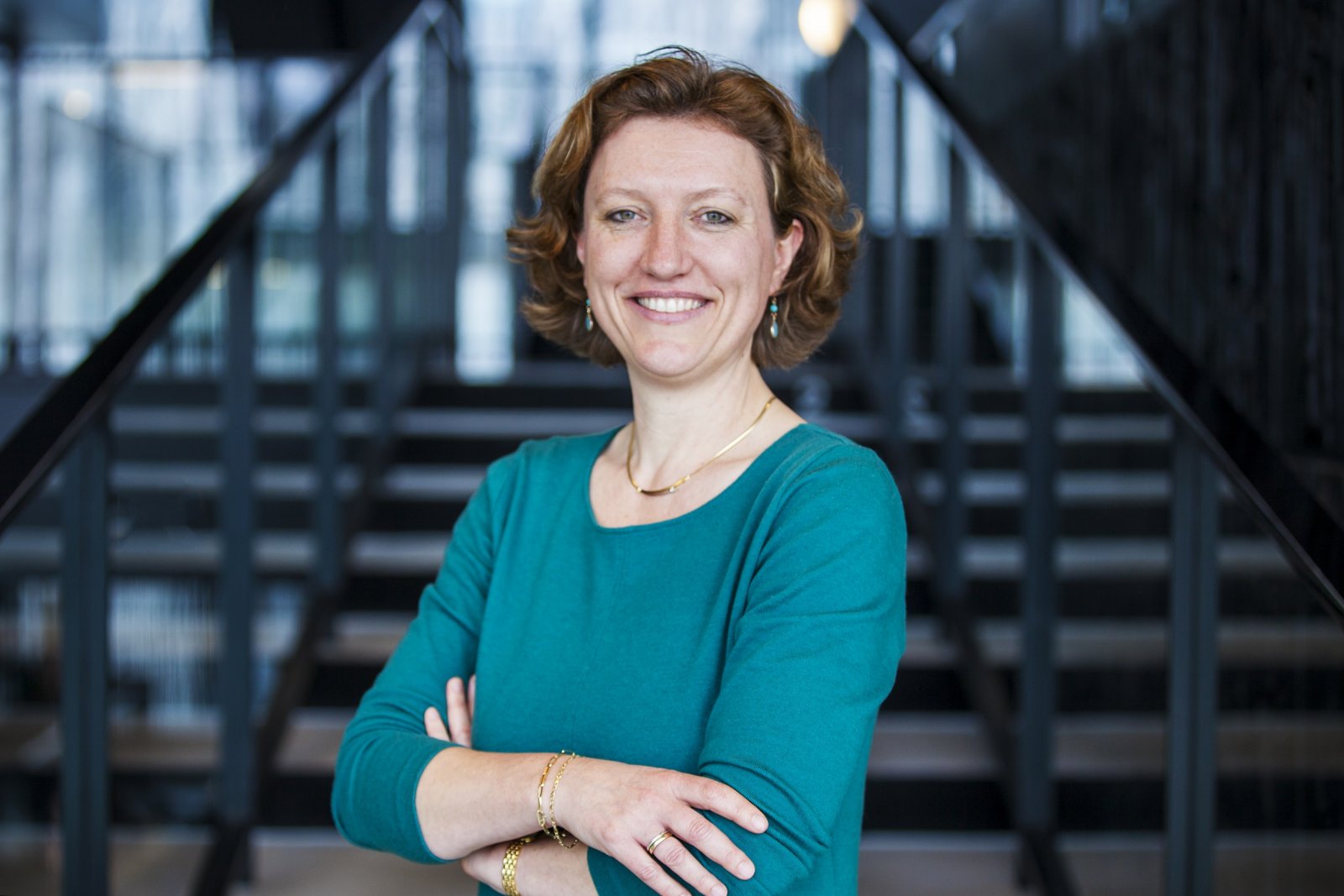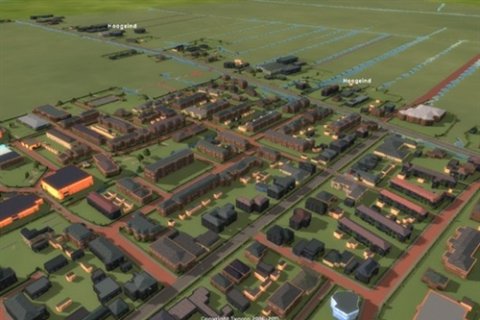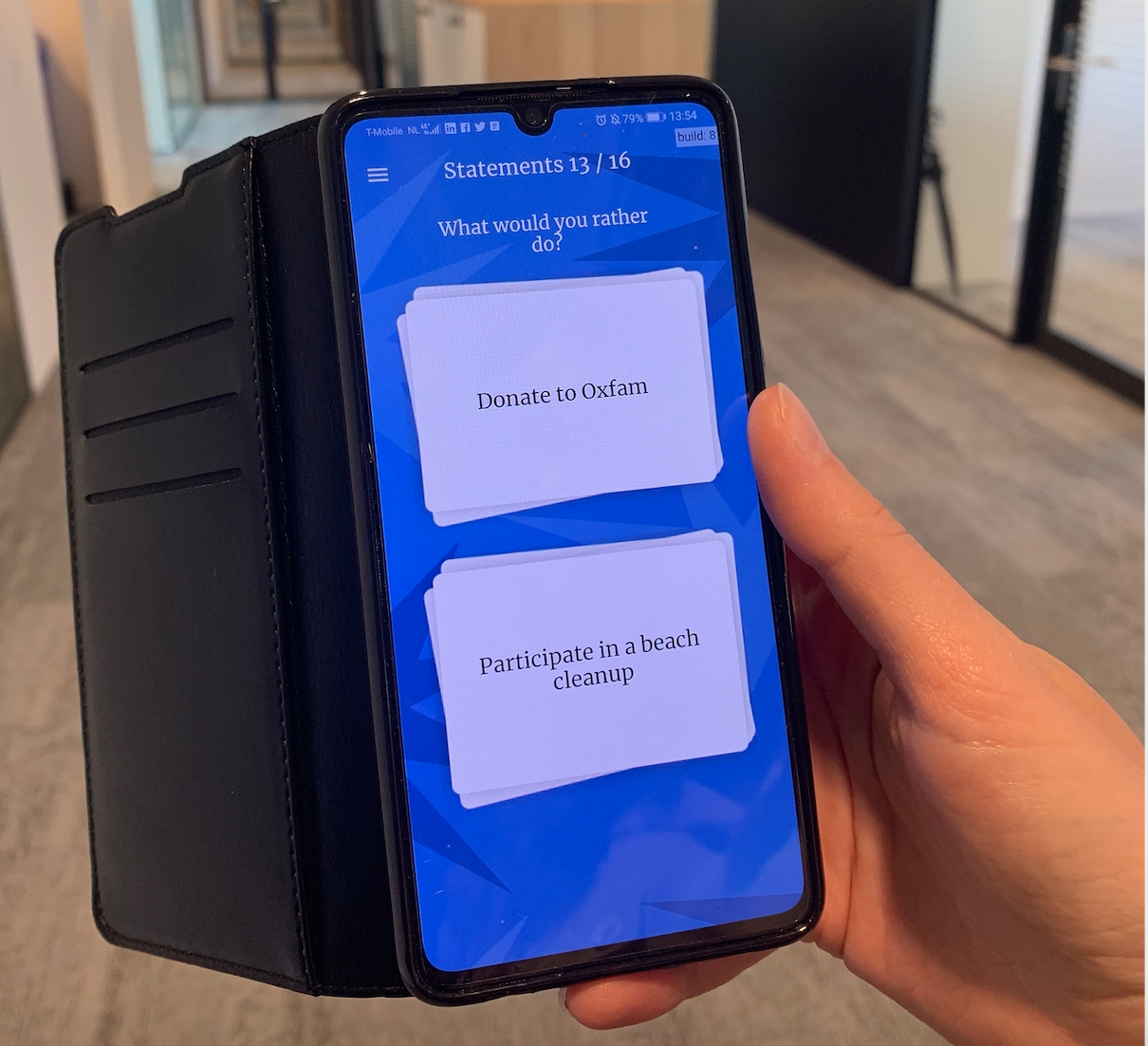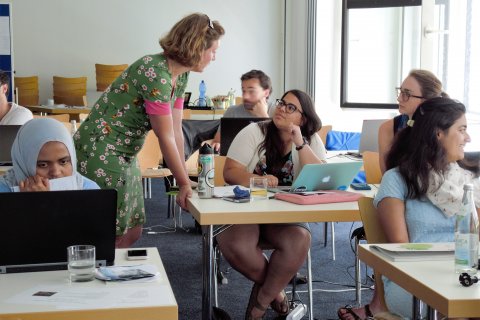Karin Rebel: Games can communicate sustainability in a fun way
Karin Rebel is leading the development of Utrecht 2040, a novel game on sustainability that will be rolled out to incoming students from two faculties at Utrecht University in September. It is hoped that it can be available university-wide in the near future. So what’s in a game?
In this interview Dr. Rebel tells us about Utrecht 2040, the importance of interdisciplinary education, and how games are in fact not too far away from her modelling background.

Let’s start with the basics. What’s the focus of your academic research?
“I want to understand the potential of natural vegetation in combating climate change. I look at how vegetation, and in particular natural forests are taking CO2 from the atmosphere, and how changing environmental conditions will affect this.
At the moment natural vegetation takes up about 29% of the CO2 emitted into the atmosphere. Will rising CO2 levels and changing availability of water and nutrients that we are seeing under climate change affect how much CO2 forests take up? The patterns we find feed into global climate models, which can tell us more about the potential role of vegetation in climate mitigation”.
For years I was trying to get my head around how to communicate about such complexity, but in a fun way.
But now you are developing a sustainability game to be played by Utrecht University students. What’s the link?
“Whenever I said the word model people would immediately switch off. For years I was trying to get my head around how to communicate about such complexity, but in a fun way.
My colleague Henk van Hardeveld was looking at how to combat complex land subsidence issues in Utrecht’s peat meadows. To do this he developed a computer game called RE:PEAT. Underneath was a fairly complex model, but people only saw the so called emergent properties of the model, the bit of the game you see on a computer screen. The game was really effective at getting different stakeholders to understand and respond to complex issues”.

And what happened next?
“Teaching students about sustainability has always been important to me, and I was active both in classroom teaching, and setting up the Bachelor Global Sustainability Science. When the Utrecht University Strategic Plan 2016-2020 came out, it said that “all students will become acquainted with sustainability issues as part of their curriculum”. I thought that a sustainability game might be a nice way to reach this goal.
Then Joost Vervoort, whose research uses games to explore complex sustainability challenges, joined us at the Copernicus Institute of Sustainable Development. We easily found each other and joined forces. Developing a game where students could interact with and experience sustainability issues was how we’d reach the whole university. The result is Utrecht 2040”.
Sounds exciting! Tell us about the game.
“Utrecht 2040 has been developed with game developer IJsfontein. It’s an app on your phone, but also requires intense interaction with your surroundings. Students first answer a series of statements to see how they feel about different issues related to the 17 Sustainable Development Goals (SDGs). The goal is that they start to reflect on the fact that sustainability is about more than just climate change.
In teams they’re then faced with challenges to carry out throughout the city of Utrecht, such as Take a picture of your biggest sustainability hypocrisy or Identify places in Utrecht that are suitable for urban agriculture. Through these challenges they compete against the other teams to build the best version of Utrecht in 2040”.

How does the game get students thinking deeply about sustainability?
“Throughout the whole process reflect on the SDGs and their vision towards them. This results in a profile for each student detailing the relative importance they place on each SDG, and likeliness they will do something towards achieving them. From the test runs we see that some students find this very interesting and positive, and others find it confronting that their profile might show that ending world hunger is bottom on their list of priorities. It is these kinds of reflections and emotions that make people learn. And in the end, the aim of the game is to teach students about sustainability”.
Aside from the game, you’ve recently been appointed a senior fellow at the Centre for Academic Teaching. Tell us about your plans.
“The role of universities in society is changing. Grand challenges like sustainability need to be solved interdisciplinarily - this was also very important when we were developing the Bachelor Global Sustainability Science. But at Utrecht University we don’t have all the required disciplines, like engineering. We must collaborate with other universities to fill this gap.

Over the next three years I’m setting up an inter-university course with three universities with very different expertise: Eindhoven, Wageningen and Utrecht. I will evaluate whether this brings any added interdisciplinarity, and importantly, if there is added learning for the students. Innovating in teaching is really my passion, so I’m really looking forward to it!”

